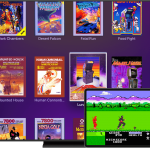7 essential cyber security tips for small businesses

Every year, cybersecurity becomes a bigger issue for businesses large and small. While computer experts and regular people are getting better at protecting their data, hackers and digital criminals are keeping up every step of the way.
A well-informed and bad-intentioned hacker could cause your business serious harm, engaging in such nefarious behavior as freezing your accounts, demanding a ransom, and stealing your customers’ sensitive personal data. In order to avoid these catastrophes, you need to do everything you can to beef up your cybersecurity operations. These days, failing to take these threats seriously is simply asking for trouble. Here are seven essential cybersecurity tips that can benefit any small business owner.
Human skills are essential to the success of SOCs

Security operations centers have become a key part of threat handling for many enterprises, but it's the human element that is key to success, according to a new report.
The SOC Skills Survey from training platform Cyberbit reveals that just 33 percent of respondents feel that HR understands the requirements needed to work in a cybersecurity team.
2020 mobile phishing trends

Phishing is nothing new, but the COVID-19 pandemic has seen an increase in attacks around the world as cybercriminals seek to exploit the opportunities offered.
Mobile security company Zimperium has produced an infographic looking at phishing trends with a particular emphasis on the mobile sector.
Sudo vulnerability could give attackers root access on Linux systems

Security researchers have revealed details of a vulnerability in Sudo that could be exploited by an attacker to gain root privileges on a wide range of Linux-based systems.
News of the security flaw was shared by Qualys, and it has been described as "perhaps the most significant sudo vulnerability in recent memory". Worryingly, the heap-based buffer overflow bug has existed for almost a decade. It is known as Baron Samedit, tracked as CVE-2021-3156, and affects various versions of Sudo.
UK government faces software skills crisis

Governments don't have a good record when delivering IT projects, but a new study from digital experience company Acquia that the UK government is facing a major software skills crisis.
Results show that 28 percent of vacancies remain unfilled. Across the 12 departments which responded to freedom of information requests, some 317 developer positions are open, while just 808 developers are currently employed.
2021 Prediction #2: Peak Facebook as Zuckerberg runs out of role models

If 2020 was a Trump- and Covid-inspired year of social media excess, 2021 can’t help but see some reversion. But it’s more than that, with big Internet companies coming under greater regulatory scrutiny worldwide, especially Facebook and Google. This year is going to be a tough one for Mark Zuckerberg, especially. And while I don’t expect Zuckerberg to abandon his CEO job this year, he eventually will, simply because it isn’t as much fun as it used to be and there will come a point (maybe in 2022) when leaving the top job will help Facebook’s stock.
At this moment there’s reportedly a bot operating on Telegram selling for $20 or less the personal info including phone numbers of 500 million individual Facebook users. What’s the logical corporate response to a gambit like that? Nobody knows because nobody has been in Facebook’s particular position before.
Plex Arcade is a retro video game streaming service that excludes Linux users

Over the years, video games have certainly gotten more beautiful, but that doesn't mean they are more fun. In fact, I would argue that gameplay has gotten worse over the years. Younger gamers would be well-served to play some games from decades of the past. Forget graphics -- fun is what really matters.
Today, Plex launches a retro video game streaming service that should make playing older titles even easier. Called "Plex Arcade," it currently only offers games licensed from Atari, so we are talking really old-school stuff here, folks (think Centipede and Combat). At $4.99 month ($2.99 for those with Plex Pass) it is rather affordable. Unfortunately, there is one big catch -- Linux users are being left out.
Firefox 85 blocks so-called 'supercookies' as Microsoft Edge 88 boosts performance and security

It’s been a busy few days for web browsers. Last week, Microsoft Edge 88.0 rolled out several major new features, including a new sleeping tabs feature, while today sees the launch of Firefox 85.0.
Firefox 85 arrives with three new noteworthy features. The first is protection against so-called 'supercookies', trackers that are able to hide within browsers to track users online even after they’ve cleared cookies. Firefox achieves this by isolating the cookies so they can’t follow your progress between sites.
What are the things to consider before moving to the cloud?

At this point, even the most stubborn holdouts have to admit that the cloud offers unbeatable levels of performance, stability, convenience, and security. Working through the COVID-19 pandemic has made that abundantly clear. Keeping key files in local storage quickly loses its luster when you’re unable to access that local storage due to travel and workplace restrictions.
If you’re in that position, then, you’re likely in the phase between accepting what you need to do (move your files and processes to the cloud) and actually doing it. And while there is a sense of urgency to the task ahead of you, it’s entirely reasonable to think things through before you proceed. It’s a massive change, after all, and you want it to be as smooth as possible.
New 'Digital Bunker' offers a managed private cloud for enterprises

For companies that deal in sensitive information, keeping data secure in the cloud and for remote working is a major challenge.
To help meet this TetherView is launching an innovative managed private cloud service called 'Digital Bunker' which offers a 'one-way-in and one-way-out' private cloud solution for enterprise customers.
Exposed IoT devices put enterprises at risk

Although they are intended to make our lives simpler, the proliferation of connected devices has thrown up new headaches and risks.
New research from RiskRecon and the Cyentia Institute has looked at exposed IoT devices within a dataset of 35,000 organizations and explores the related security problems.
2020 sees rapid rate of change in the IT landscape

A survey of 500 US-based enterprise technology decision-makers from IT decision making platform AVANT Communications reveals rapid change as businesses press ahead with digital transformation and bring in new disruptive technologies.
The reporst shows nearly half of respondents intend to grow their usage of SD-WAN while almost 60 percent expect to increase or significantly increase their use of MPLS.
A permanent beta mindset for 2021 [Q&A]

2020 turned the world on its head, and 2021 is proving to be just as challenging for many at the moment. The UK government, and those working to deliver the technology for it, not only have the current pandemic to worry about, but also fallout from Brexit.
Prahlad Koti, Partner at Netcompany explains why, as technologists, we must heed the lessons, look out for the speed bumps ahead and build technology that will bring sustainable good to the public sector.
Pandemic boosts the importance of data privacy

A rapid shift to remote work and the need to make use of individuals' health information has led to greater emphasis on the importance of privacy protections during the pandemic.
The fourth annual Data Privacy Benchmark Study from Cisco, released today, analyzed the responses of 4,400 security and privacy professionals across 25 countries and explores attitudes towards privacy legislation and the emergence of privacy metrics being reported at senior level.
Security researchers develop unofficial patch for drive-corrupting Windows 10 NTFS bug

A couple of week ago, we reported about a critical NTFS vulnerability that left hard drives open to corruption in Windows 10. Security researcher Jonas Lykkegaard revealed that opening a folder with a specially crafted name could wipe out the contents of a drive in an instant.
Microsoft is yet to produce a fix for the problem, but that doesn't mean no one else has. Third party patch-makers such as 0patch have already made names for themselves stepping in to produce updates either for unsupported versions of Windows, or simply beating Microsoft to the punch. Now it is the turn of developers from OSR who have released an unofficial workaround patch for the NTFS flaw.
Most Commented Stories
© 1998-2024 BetaNews, Inc. All Rights Reserved. Privacy Policy - Cookie Policy.




